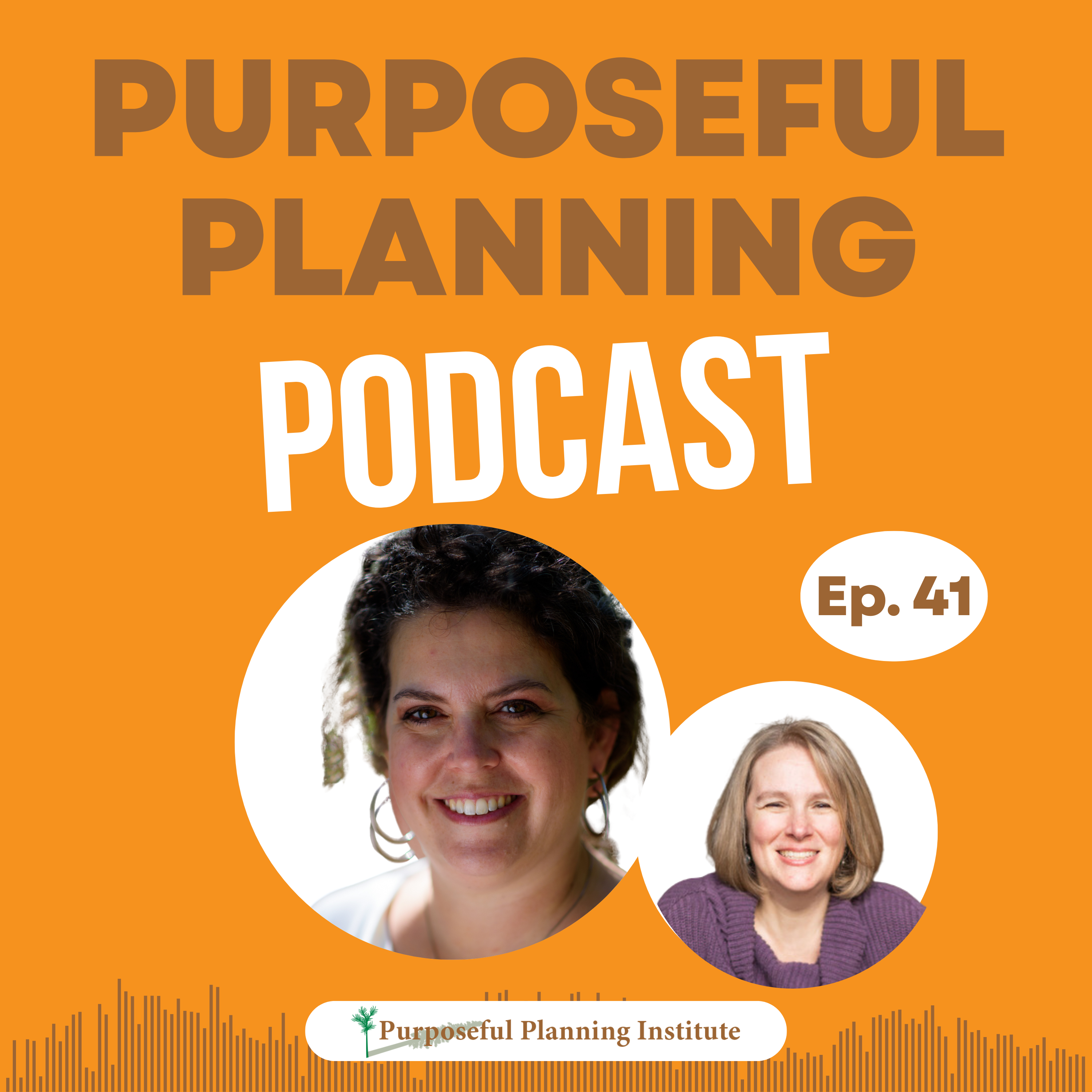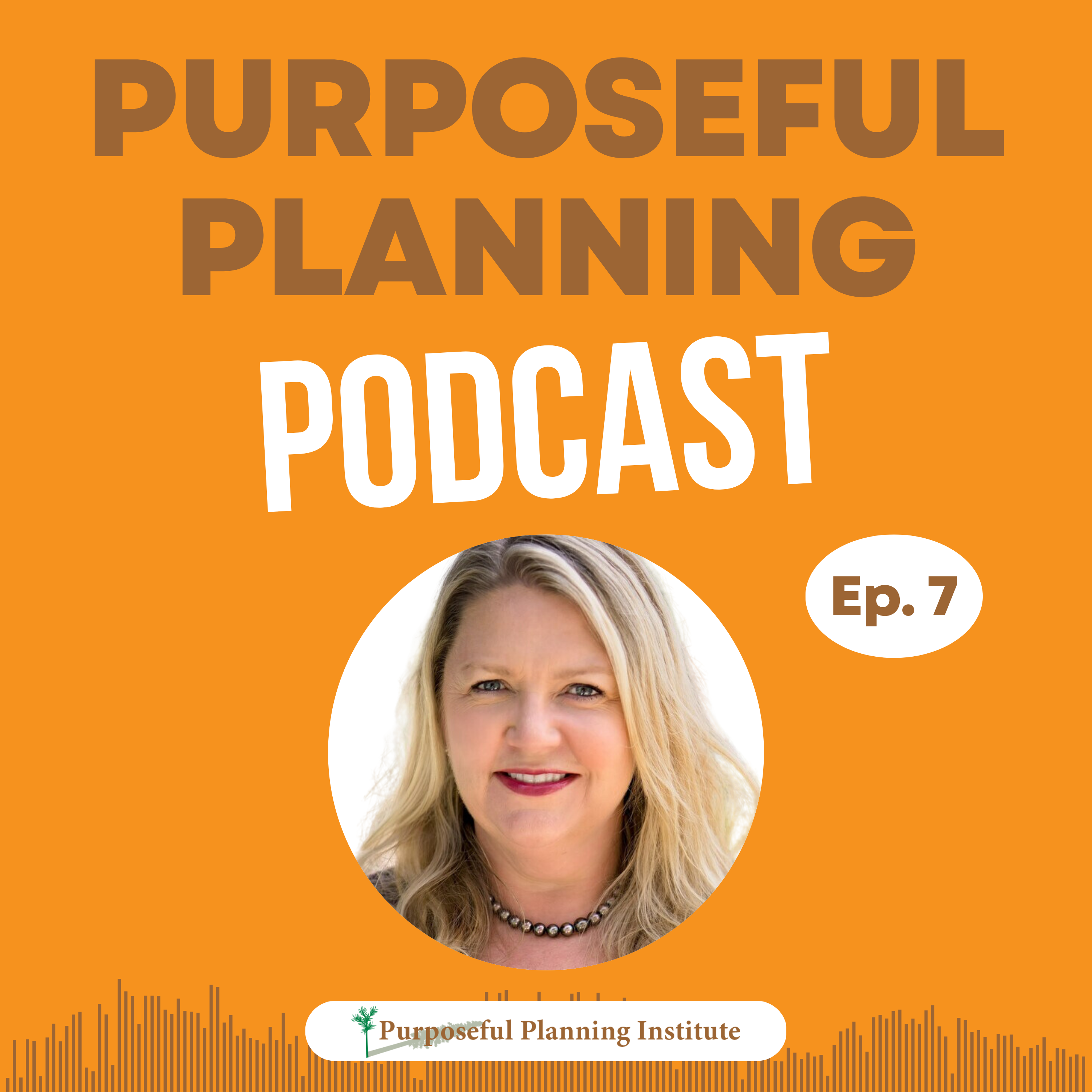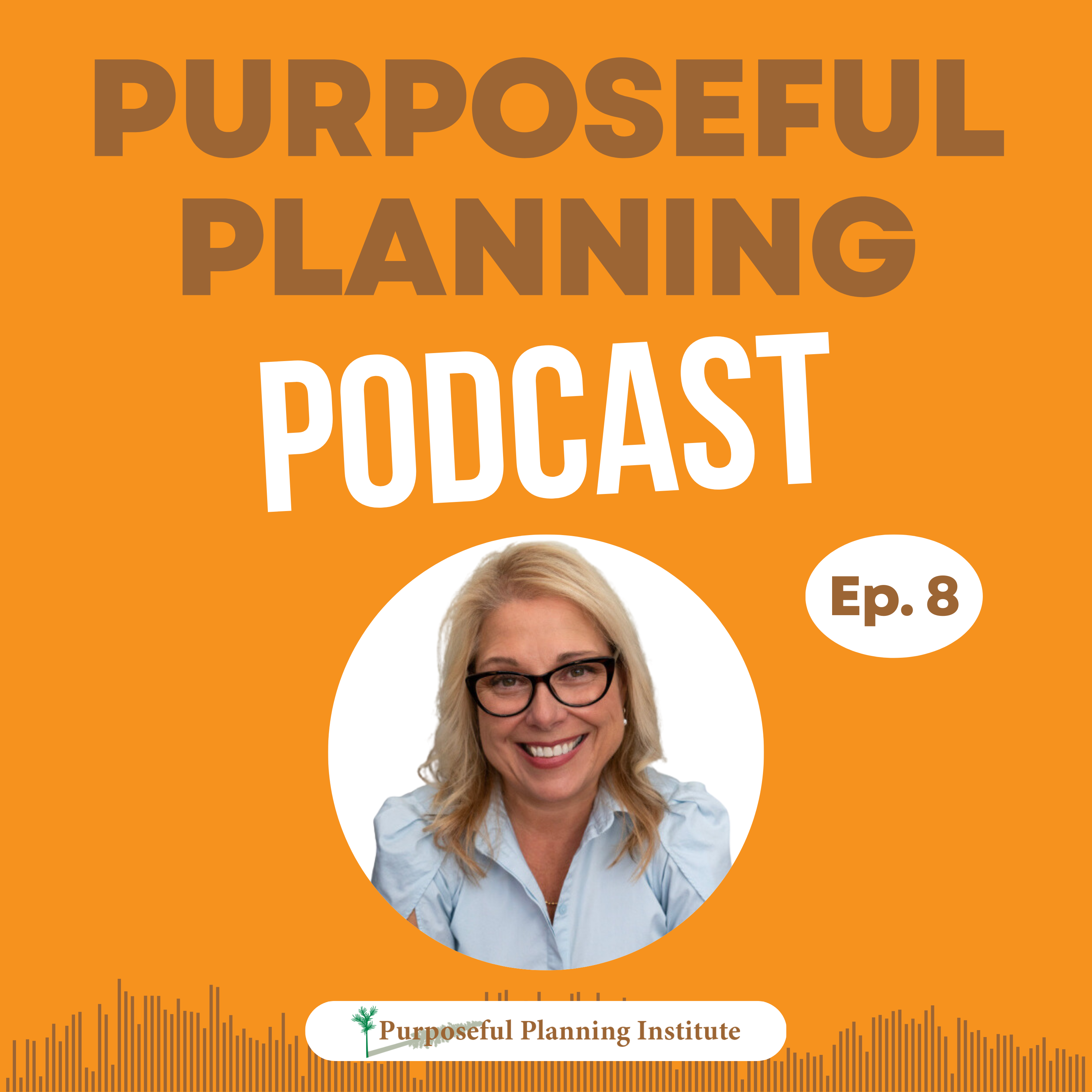Episode Transcript
JOHN A: I'd love to welcome you to today's podcast, Lessons Learned in a Decade Working with the Next Generation featuring our thought leader guest, Whitney Webb. Whitney has been working with next gen inheritors from ages 5 to 55 across the world since 2012. So she's really entering her 11th year of service. And she basically serves these inheritors by assisting them in dealing with topics ranging from values and identity, philanthropy, financial literacy, entrepreneurship, leadership, family dynamics, career decisions, relationships, and prenups, and much more. She is the managing director of Governance, Education, and Philanthropy at Crescent Capital. And she's the founder of Launch Generation. So Whitney, I've been looking forward to this podcast for quite a while now. And I'd love to have you. And let me just say, I do think that this ability to work with the rising generation family members, as early as age five, is an opportunity that's often overlooked. I hear everybody all the time saying, “Well. I wait until I'm 16-18 years old, that's when we can really start doing serious work.” But I think you've found that we don't have to wait. But I'd love to ask how do you take the focus on the next generation to really spark real momentum?
WHITNEY: Yeah, great question. And thanks for having me. I'm excited about this, too. So I think a lot of families when they come to me, or they seek out services of someone to educate the next generation, a lot of it is right away about, “Okay, teach my kids financial literacy. Teach my kids to be responsible. They're about to go off to college, and I'm worried about what they're going to do.” But I think that's really difficult for anyone to be singled out. And I think what you're trying to do in the family is create a culture of learning. You're not trying to create an obligation or a punishment for any of the family members. And that tends to be how the next generation views it. So I think that the leaders of the family can really think of basic leadership advice which is ‘Don't make others do what you wouldn't do yourself.’ So I think viewing this work as full family education is so important to actually make it lasting and to make people want to be part of it. With the singling out, there's so much room for miscommunication. And I think miscommunication is at the heart of so many problems that families have, which is not a surprise to anyone listening. But just to give an example here, one of my very first times being brought in to work with family, I was working with a group of cousins. And from my understanding, I was there to teach about both personal finance and philanthropy, and I thought everyone knew I was there. As soon as I got in and closed the door and said my ‘hellos’ I was basically cornered by one of the cousins saying, “Is this a hostile takeover?” And I was like, “A hostile takeover at what? I don't think I know what you're talking about.” They weren't sure. “Are we being thrown out of the business or being thrown out of inheritance? What's going on?” And so, I realized the fact that the other family members were there, and hadn't really even talked to them about what this process was about, led to such fear, anxiety, and paranoia. And so, it took more than half of that meeting just to kind of calm some nerves. So I think it's just so important that everyone starts off on the same page. It doesn't mean that the whole process of education needs to look the same for everyone. But if everyone has skin in the game, then you're creating that culture. And obviously, the education for a five-year-old will be much more about exposure and comfortability than it would for a 16-year-old.
JOHN A: I think it has great points. There really is a delicate balance here between the emphasis on structure and kind of respecting and encouraging autonomy. And in these educational initiatives that you're leading in, I'm just curious how do you suggest we strike the balance between structure and autonomy when we're working with these rising generation family members?
WHITNEY: Yeah. I wish I could say that I had created some curriculum that will work for every single family and solve all of these problems. Obviously, I have not. A lot of people have created great tools. And I think more of us should be creating tools, activities, and processes, because what I've seen work and actually lead to behavioral change and an impact is customization. But even within customization, you do need a balance of sharing practical information. And then giving an experience where people can gain confidence in doing those skills. And the way that we really look at it is, if you can't describe something, if you can't explain something in about 15 to 20 minutes, then you probably need to break that down into two different sessions. And then after 15 minutes, you need to focus on a bias to action, you've got to get them doing something. So if we're thinking about budgeting, have them actually physically in front of you go sign up for something like mint.com, have them create the budget in front of you. If you're talking about credit score, go in with them and have them check your credit score. If they're talking about starting a business, actually sit with them and show them exactly the process that they have to go through to create an LLC. I've noticed that it's not the financial literacy, it's not the educational that is so tricky, it's the anxiety, the uncertainty, and the competing priorities that stops people from taking action. And so I think that's where trusted advisors can come in. Even if it seems like as soon as you hang up that call, or you leave that door and you think they're gonna get going, they're gonna start that investment portfolio, and they're going to do something, they're most likely not. But if you're sitting there and you can help them action it, they'll remember that. And they'll want to be the one to come back to you because you actually helped them move forward.
JOHN A: That's a really, very, very important point. The fact that they're going to really connect with you deeply because of the help that you're offering them and the way in which that help is being extended. Let's talk just a little bit more about how you help the next gen family member, the rising generation family member, find a balance between legacy, responsibilities, legacy (the kind of stewardship side of legacy) and innovation (the freshness of what innovation might bring into their life).
WHITNEY: Yeah. There's so much anxiety that lives here. And it's because so many of these family members are wearing so many more hats than a person not in a family enterprise or family business would be wearing. So, a young woman might simultaneously be thinking about her role as a daughter, as a mother, as a business owner, as a philanthropist, and all of that. And so, I think that's the first step. Help people understand like, “Yeah. There's a reason why you feel anxious. You're being pulled in so many different directions, and you're being asked to make a decision essentially for different people.” And so, I think acknowledging why that is stressful, is first of all, a really good place. But then, the next advice that I give is to help them practice empathy. And I use the word practice intentionally because you can't just flip a switch and be empathetic. Some people are more empathetic than others. But really, really understanding that might mean getting out of your comfort zone. And start by thinking about, “Okay. If I want to honor legacy, I want to honor what my parents or my grandparents have done. What must it have been like for them to start this? What risk must they have taken? What challenges must they have faced?” And really thinking about, “Are they worrying about being forgotten? Or all of their hard work being for nothing?” So really starting there. And one of my favorite quotes — to be honest, I don't know who exactly said it. It was in a book I read, and I just keep repeating it — which is ‘In order to hear one must be heard’ and that really resonates with me. Because I think that next gen members, whether they're trying to make a change or become a leader within a family, they want to be heard. That is the number one thing. They want to be heard. They want to be respected. They want to be taken seriously. They want to be able to have their voice seen and in whatever the enterprise is. But in order to do that, they have to listen to their parents and have to listen authentically. And oftentimes, it just takes being heard for the parents to potentially open up to new ideas. And then from there, if they're thinking about making a big change, I think it's a lot easier to implement something when you know how those changes will affect someone else. So they might go about it more thoughtfully. And then if they're still pushed back on making changes, I think asking your parents straight out, “Hey. How did you innovate when you were younger? What did innovation look like for you? And what would innovation look like now if you've had it?” Because innovation happens all the time. It's much easier to look back at it than live through it. So just a good question to kind of move things forward.
JOHN A: Whitney, it's so easy, I think, to slip into a teaching mode in these interactions that you have with rising generation family members. But I think you really make up a strong commitment to using more of a coaching approach. A focus on the kind of self-exploration and self-awareness that pays dividends in terms of increasing the engagement and making the rising generation family members feel empowered. If you have some examples of how you've done that, or suggestions that you would offer around how important coaching and self-exploration is, I would love to hear those.
WHITNEY: Yeah, and this has probably been one of my biggest learnings in this work. At the beginning, I viewed so much of it as, “Well. Here's the lesson. Here's how we're going to teach it. We've got 60 to 90 minutes, whatever it is.” But, again, you've got the anxiety. You've got the competing priorities. You've got generally people who are different ages live all across the world. There's just so many differences. One of my favorite books that is relevant to coaching is called Designing Your Life. And a big part of what they say is think about one of those big red arrow signs that says you are here. And that's the only place to start. And so in order to do that, you really need to have a coaching mentality with the next gen members that you're starting with. I've worked both for an independent company and I’ve worked for myself. But I've seen across the spectrum how people approach this work. And one of the biggest mistakes is by starting with saying something like, “Oh, well, that's not a real problem. You'll figure it out.” Or “There are real problems in the world. You don't need to worry about that.” Or, “Wow. You should probably realign your spending.” And it's interesting even in a joking manner, people just shut down. So I think starting with the coaching mentality of really asking questions like, “What does success look like for you? Where do you want to be? How can I help?” I think the more you can ask questions, the more you'll figure out where they are. And then, of course, you can weave in education through that process. A great book called the Coaching Habit, that’s the one that I really like.
JOHN A: The Coaching Habit, okay, sounds like a great book. Whitney, let's at least kind of bring my interview questions to an end. Sometimes, it is important to manage expectations of the parent, the grandparent, or the family leader that has opened the door in giving you this opportunity to work with rising generation family members. I know that sometimes they really, really, really want to steer what that curriculum and what the approach is going to be. But how have you found it's best to manage their expectations?
WHITNEY: Yeah. And this really goes back to your first question, too. I really view this work as work for the whole family. I've noticed that when the parents or grandparents are coming to me and they're saying, “I want my children to be responsible. I want them to understand business skills,” whatever it is. At the core of it, they're basically saying, “I want my kids to act like me. I want my kids to make decisions in the way that I have.” So I think one of the best ways to start is to ask these questions to the parents, “What does success mean for you when you think about your kids?” And if you dig into it, many times, they want them to be happy. They want them to be healthy. And they want them to be responsible, motivated, or something like that. And if you dig in further, what does motivation actually mean to them? Oftentimes, I've seen parents who are disappointed that their kids are not following in their footsteps as an entrepreneur. And obviously, we can talk about the idea of the kids living in their shadow. That's difficult alone. But what if pushing them to have that motivation, to take those risks, and to follow in their footsteps is actually taking away their happiness and their health? So is that as important? So really having them kind of reprioritize how they think about success for their kids. And then, I think a powerful question is also, “How do you think your kids would define success?” That can usually be a lightbulb moment for parents to really just remind them that they are their own people and their path is going to look different. But I think that having those questions up front is so important because otherwise you're working towards a completely unattainable goal. I'm not going to flip anyone into a person that they're not and neither is anyone else listening to this podcast. It's not going to happen. We can be there to educate, expose them to new ideas, guide, give confidence but we can't change human beings.
JOHN A: This was great. And I would just say on this last point that I often see what I call the parental impatience showing up where I hear parents, particularly fathers relating to their sons, saying, “Oh. My gosh. When I was that age, I was doing this.” Or, “I just don't see that fire. I don't see that spark. I don't see that drive that I had.” And part of what I have found helpful is to at least acquaint them with the fact that their child is not unique. There is a delayed maturation going on in society, and particularly in affluent families where maybe what was customary at age 25 a generation ago is now pushed back into the early mid 30s. And emerging adulthood is a real sociologically established fact of life. And parents need to understand that their children need to be allowed to mature and develop at their pace. And I think if parents can learn that lesson in letting go of the expectation that their child is going to walk exactly in their path, things will be much better.
WHITNEY: Yeah. Especially if they're going to prioritize relationships with their kids. Then they need to think about if they're trying to force this type of education or change, at what cost? That should always be asked. And generally it's that cost to the relationship. So again, I think you're totally right. Helping them rethink and reprioritize is key.
JOHN A: I’ve been reading a couple books on parenting styles, and it's absolutely clear from some of the sociological research that an affirming, empowering, accepting, and inclusive parenting style is so important to being able to pass on values. And in a sense, encourage the appropriate maturation of children. So, Whitney, thank you for everything that you're doing. Thank you for sharing so richly with us today. We will close this podcast and wish everybody a very successful coming week. And thank you again, Whitney.
WHITNEY: Thanks so much. Thanks for having me. Great chatting with you.


